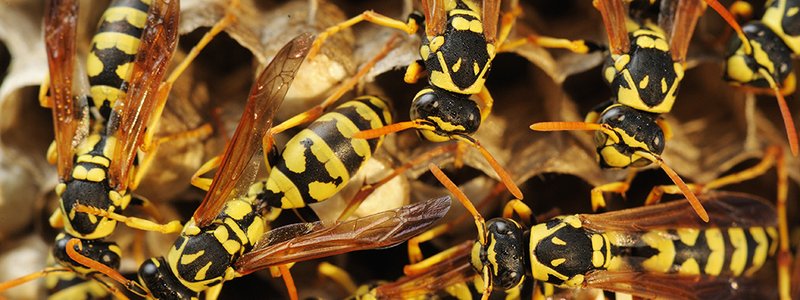In early Spring a queen wasp comes out of hibernation. She will fly off to find a suitable location to start her own colony, she will start to build her nest and lay her first eggs.
These eggs will be her first workers and will continue to build the nest so that she can stay put and continue to lay eggs and grow her colony.
It is only in late Summer when the workers are no longer required and their food source from within the colony dries up that they appear docile, especially while you’re out enjoying that evening drink and they make a ‘wasp line’ for it.
If a wasp feels threatened and unlike bees, they will go into warrior mode and will send out signals to their colony so there’s a high risk of being stung…multiple times!
Wasps will feed from decaying matter and so more likely to result in infected stings, that’s notwithstanding the obvious allergic reactions to those susceptible.
A pest control technician can spot these nests early. They know what and where to look and removing them sooner rather than later reduces the risk of employee and customer injury, possible medical treatment, and potential anaphylactic reaction.
Tailored pest control plans provide a technician presence at regular intervals for surveys, advice, inspections, and treatments as required and for a number of pest control requirements that can be experienced in new builds and developments.
For more information please get in touch with TCS.
